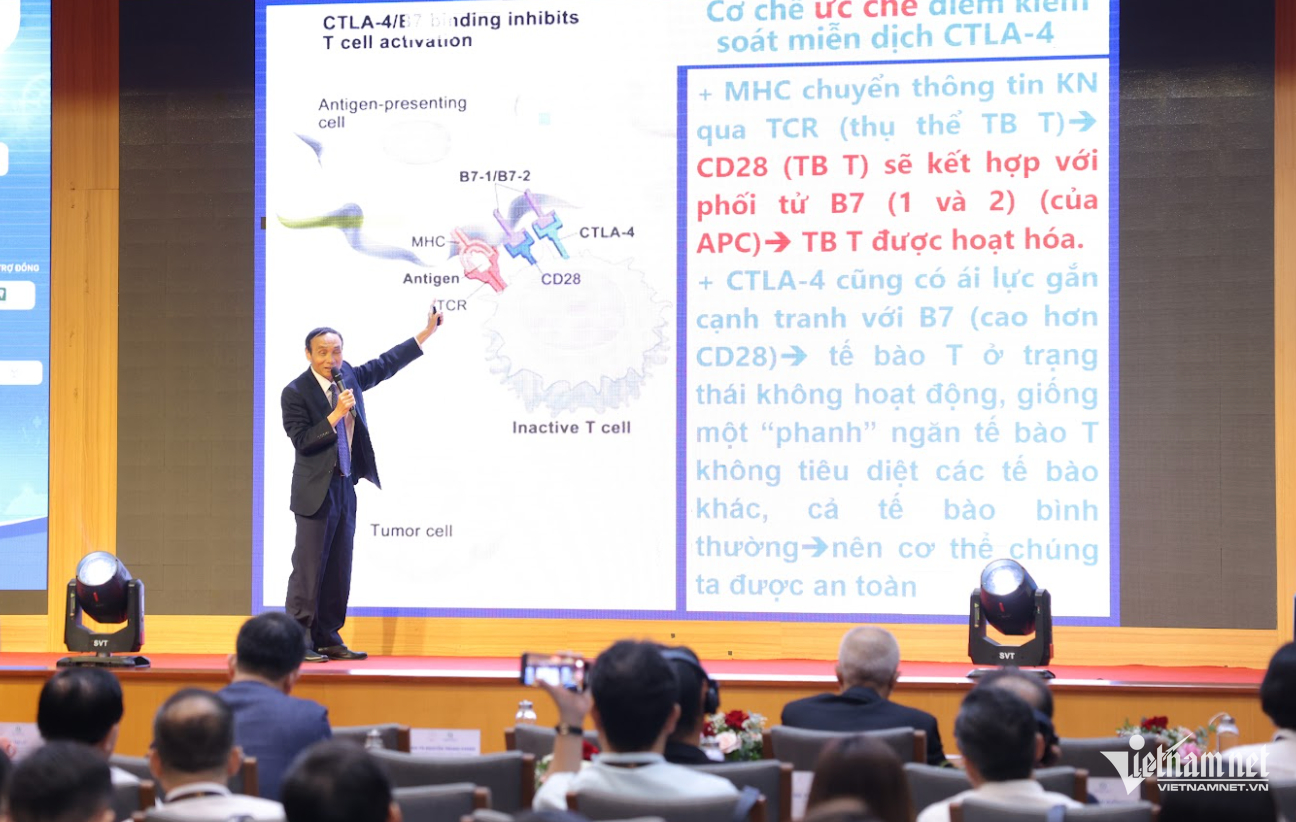This alarming statistic was emphasized by Professor Mai Trong Khoa, former Deputy Director of Bach Mai Hospital, at the first International Conference on Cancer Immunotherapy in Vietnam, held from August 1-2. As a leading expert in oncology, Professor Khoa highlighted the urgent need for advancements in early detection and treatment.

During the conference, Professor Khoa referenced data from Globocan 2020, which reported over 182,000 new cancer cases annually in Vietnam, with more than 122,000 deaths. The Ministry of Health estimates that over 354,000 Vietnamese citizens are currently living with cancer.
Professor Pham Van Thuc, President of the Vietnam Cancer Immunotherapy Association, noted that the global increase in cancer incidence and mortality is driven by factors such as population aging, environmental pollution, and exposure to harmful chemicals and radiation.
Professor Khoa acknowledged the efforts of Vietnam's healthcare system in improving early diagnosis and treatment for cancer, a chronic non-communicable disease. He emphasized that Vietnam possesses modern diagnostic tools and treatment methods that align closely with global standards.
Current cancer treatment options include surgery, radiation therapy, chemotherapy, and nuclear medicine. Recently, targeted therapy and immunotherapy have gained attention as promising treatment approaches.
Targeted therapy involves directly attacking cancer cells using monoclonal antibodies or small molecules, inhibiting cell division, tumor growth, and blood vessel development, while also causing cancer cell death.
In contrast, cancer immunotherapy involves manipulating the immune system's checkpoints to attack cancer cells effectively.
According to Professor Thuc, cancer immunotherapy has been widely and successfully implemented in many countries, including the United States, the United Kingdom, Japan, and South Korea.
Despite its proven effectiveness, targeted therapy and immunotherapy have limitations. Targeted therapy is ineffective if the tumor lacks specific gene or protein alterations. Tumors may also develop resistance to the treatment over time.
"There remains a proportion of cancer patients who are not suitable for targeted therapy. Complications from these therapies often relate to immune or autoimmune mechanisms, which can be severe and challenging," Professor Khoa explained.
Immunotherapy's limitations include treatment response variability based on individual patient factors and comorbidities. Excessive immune responses may cause inflammation in various organs, such as thyroiditis, myocarditis, endocrine inflammation, and interstitial pneumonia, potentially leading to severe complications and even death.
The first International Conference on Cancer Immunotherapy in Vietnam attracted over 1,000 experts and healthcare professionals from countries known for their research in cancer immunotherapy, including Japan, Germany, and South Korea. Over two days, the conference featured 40 scientific presentations.
Associate Professor Nguyen Trung Chinh, Director of Phuong Dong General Hospital and co-organizer of the conference, emphasized the importance of this forum for sharing knowledge on comprehensive cancer care in the context of increasing cancer incidence.
The conference provided an opportunity for medical professionals to update their knowledge on the latest advancements in cancer diagnosis and treatment, aiming to improve the quality of life for cancer patients.
Minh Anh